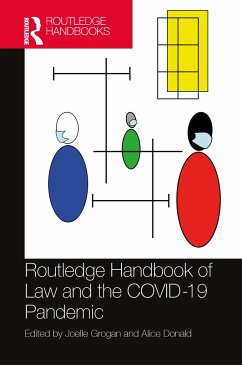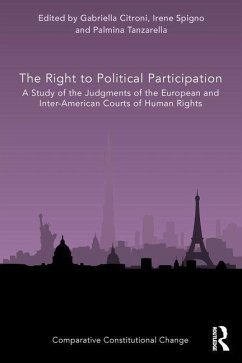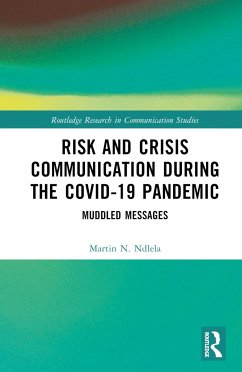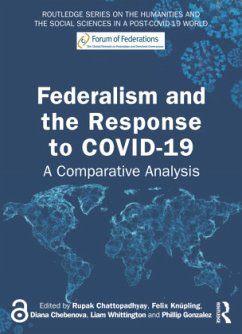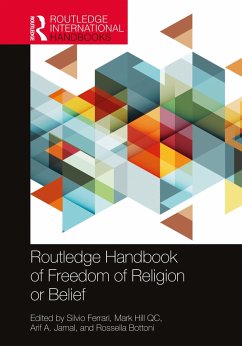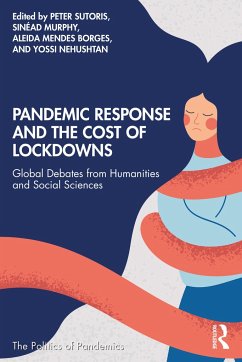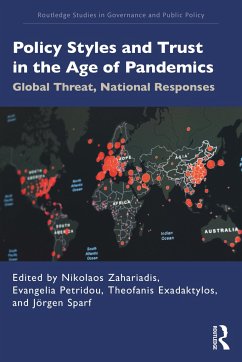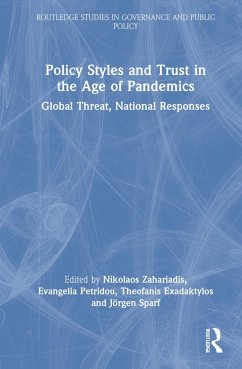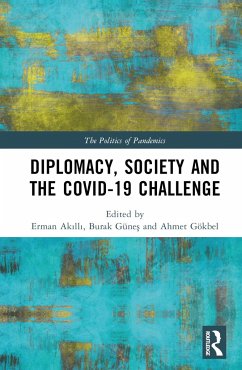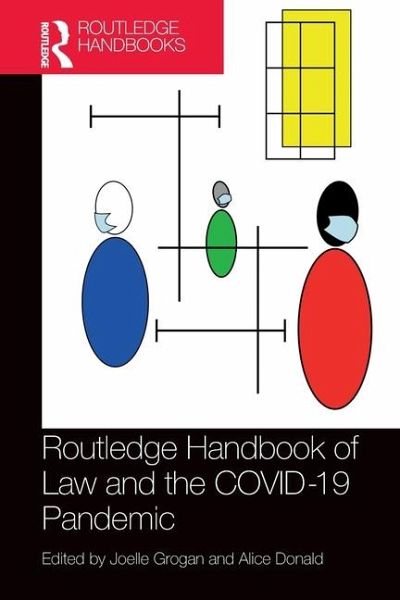
Routledge Handbook of Law and the COVID-19 Pandemic
Versandkostenfrei!
Versandfertig in 6-10 Tagen
48,99 €
inkl. MwSt.

PAYBACK Punkte
24 °P sammeln!
The COVID-19 pandemic not only ravaged human bodies but also had profound and possibly enduring effects on the health of political and legal systems, economies and societies. Almost overnight, governments imposed the severest restrictions in modern times on rights and freedoms, elections, parliaments and courts. Legal and political institutions struggled to adapt, creating a catalyst for democratic decline and catastrophic increases in poverty and inequality. This handbook analyses the global pandemic response through five themes: governance and democracy; human rights; the rule of law; scienc...
The COVID-19 pandemic not only ravaged human bodies but also had profound and possibly enduring effects on the health of political and legal systems, economies and societies. Almost overnight, governments imposed the severest restrictions in modern times on rights and freedoms, elections, parliaments and courts. Legal and political institutions struggled to adapt, creating a catalyst for democratic decline and catastrophic increases in poverty and inequality. This handbook analyses the global pandemic response through five themes: governance and democracy; human rights; the rule of law; science, public trust and decision making; and states of emergency and exception. Containing 12 thematic commentaries and 25 chapters on countries of diverse size, wealth and experience of COVID-19, it represents the combined effort of more than 50 contributors, including leading scholars and rising voices in the fields of constitutional, international, public health, human rights and comparative law, as well as political science, and science and technology studies. Taking stock after the onset of global emergency, this book provides essential analysis for politicians, policy-makers, jurists, civil society organisations, academics, students and practitioners at both national and international level on the best, and most concerning, practices adopted in response to COVID-19 - and key insights into how states and multilateral institutions should reform, adapt and prepare for future emergencies.





